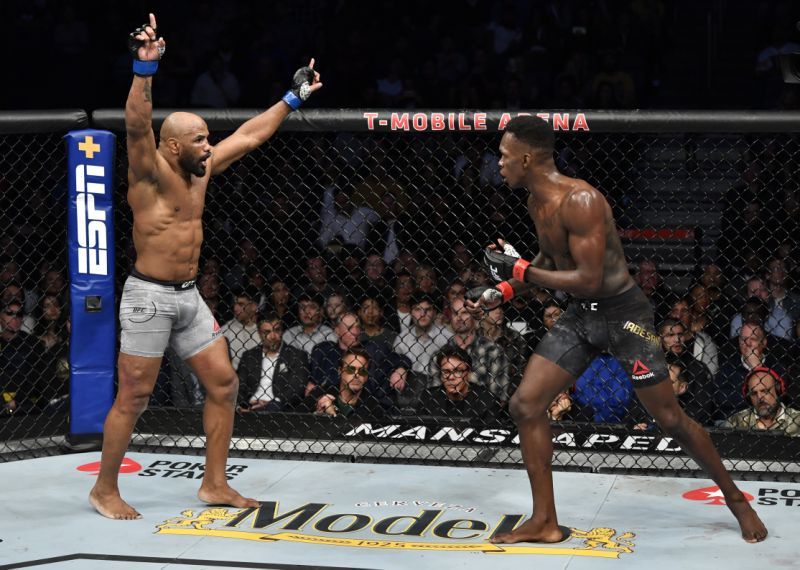#TrueTalkTuesdays 76
“If you want to be the champ, you’ve got to beat the champ.”
In combat sports, that is a commonly used adage, which means that if you are going to win a decision against the champion, you have to really beat him or her decisively. By that sentiment, on a close fight, judges are supposed to side with the champion.
Spoiler Alert: UFC 248 main event, Israel Adesanya vs Yoel Romero brings this to mind, with Isreal getting the unanimous decision win. This fight wasn’t particularly eventful due to a clash of counter fighters with neither party really going after it. So it makes it easier to pick the champ as the winner.
But if you look at a more contested fight, perhaps Georges St. Pierre vs Johnny Hendricks, you could make the case there was a champion bias. Stat wise, it was super close, with Hendricks landing more strikes overall, but Pierre landing more significant strikes and having scored 3 vs 2 take downs on Hendricks.
But the point here is to argue whether this should be an actual judging criteria or not.
I think not.
I think all fights should use the same criteria, and not have any sort of bias, whether it be champion or hometown favorite. I believe it is an unfair advantage to give to someone, especially with how subjective fighting already is.
Personally, I believe the vagueness of judging is already a problem. Ideally, every one should know exactly who won in a fight, and there should be no surprise when it comes to a decision.
Imagine if basketball was judged by 3 judges, without keeping track of the score. Imagine how difficult it would be to pick the winner. Over 48 minutes, so many baskets are made, it would be really difficult to know who actually scored more. You would have to judge by last impressions, scoring streaks, and rallies.
That’s pretty much how fighting is being scored sadly. I think that we should score fights like a basketball game. Instead of making things vague, make it well defined. We have the ability to track very detailed stats now, so why not use it?
Opponents of the idea say fighting is more nuanced, and it’s too hard to score. That is just being lazy in my view. With enough data, the stats can paint the picture of what actually transpired without the ambiguity.
For example, one way would be to score 1 point for each significant strike landed, 5 points for a take down, 10 points for a knock down, 10 points for a strong submission. At the end of the round, tally the points and the fighter with the most points wins the round.
You could then award the winner a set amount of round points for winning a round (1 point), or award on a scale (win by less than 10 points, 1 round point, 10 to 20 points, 2 round points, win by 20+ points, 3 round points).
Then it’s just tallying the points at the end of the fight for a clear cut winner.
This is just an example that isn’t well thought out, but the idea would be to sit down and decide what we want fighters to do. Because competitors will always look to “game” the system. If we created a scoring system where we score strike attempts equally to landed, we would have fighters standing in the corner punching the air super fast, lol.
As a coach and competitor, having clear cut criteria on what is a winning performance makes our job a lot easier. I don’t have to guess as to what I should be doing to impress judges who sometimes have no idea what they are looking at.
What do you think? Do you agree or disagree?
Comment with your take on this. And if you like this article, please do me a solid and share it with your friends. Thanks!




The Israel fight was a joke Jorge almost fell asleep in the bar. It’s also the one example to go against your theory in my opinion. I totally agree with your scoring system for a real fight but in that joke if Romero scored more points he definitely wouldn’t have deserved to win. Maybe there needs to be a minimum amount of points in a round or else it’s a tie